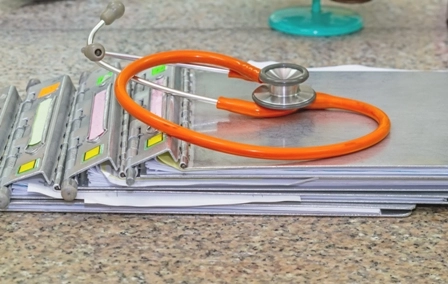Your Coding Accuracy Is Under Fire

Take stock, and run a claims audit before it’s too late. Are you finding it hard to keep up with challenges of hard core ICD-10 coding as well as the pressure of annual code updates? You could face an increase in denials if you haven’t been applying the level of specificity ICD-10 truly requires. Read on to master three ways to tackle your ICD-10-related claims issues. Take the Pulse of Your Claim Denial Rates Although the first quarter of the year is always full of changes including new CPT® and HCPCS codes, and CCI edits, this year you will have to additionally deal with denials and issues regarding the heightened accuracy prerequisite of your ICD-10-CM reporting. Do this: Run a claims audit including all your major payers on claims filed since Oct. 1, 2016, to see if you have a significant change in denial rates based on inappropriate diagnosis codes for the procedure. Disseminate that information to providers so they know where they need to tighten their documentation to help coders report conditions to the highest specificity available in ICD-10. Look to existing resources within your facility to help with this effort. “Most hospital Health Information Management (HIM) and Physician Fee Schedule (PFS) depts. have reports that track erroneous codes anddenials,” says Sarah Goodman, MBA, CHCAF, CPC-H, CCP, FCS, president of the consulting firm SLG, Inc., in Raleigh, N.C. Also, be sure to seek the guidance of your contractor, says Joanne Schade-Boyce, MS, BSDH, CPC, ACS, AHIMA Approved I-10-CM / PCS Trainer and Ambassador, FairCode Associates, LLC, Marco Island, FL. Chime In With the New Codes The 2017 coding update turned a lot of four-digit codes into more specific five-digit codes. Missing those changes means a certain denial for filing a “truncated” code. For example: The code K85.0- (Idiopathic acute pancreatitis…) would not suffice now for reporting a case of acute pancreatitis. This singular code has now expanded in to a code subcategory. You will have to report new, more specific codes based on presence or absence of necrosis, and any associated infection. Here are the new codes you would need to choose from: Turn On Your ‘Update’ Mechanism Providers billing to private payers are likely to be better prepared. This is because though CMS gave you that “grace period” for one year following the implementation of ICD-10-CM, most other payers did not. “Many major insurers did not offer coding flexibility, so many providers are already using specific codes,” said CMS spokesperson Jibril O. Boykin. Nonetheless, you’ll need to re-start the of process learning the changes to your code set for ICD-10 at least once a year to make sure you were using the most current options; just as you used to learn the changes to your ICD-9 code sets. Expect annual ICD-10 updates each year moving forward.




